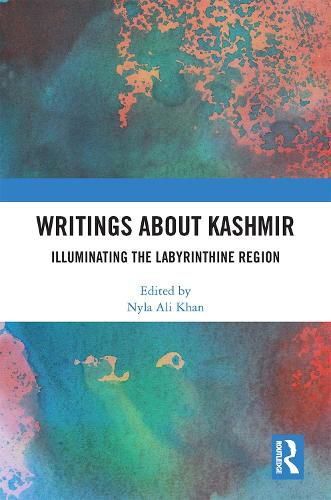Readings Newsletter
Become a Readings Member to make your shopping experience even easier.
Sign in or sign up for free!
You’re not far away from qualifying for FREE standard shipping within Australia
You’ve qualified for FREE standard shipping within Australia
The cart is loading…






Any attempt to homogenize Kashmiri society or the politico-cultural discourse on Kashmir is a dangerously flawed exercise. To that end, the chapters in this book address various aspects of the political, cultural, and socioeconomic life in Kashmir. These essays are interdisciplinary interventions that could potentially bridge ethnic, religiocultural, and political divides in the region. The book is divided into three sections: the first section explores history and memory, offering a critical dialogue between these phenomena and fiction. The essays in section two offer a critical dialogue between history, politics, and gender, analyzing historical and political discourses to underscore the agential capacities of Kashmiri women, which are, traditionally, subsumed within masculinist discourse. The sole essay in section three foregrounds the complex relationship between history, trauma, and poetry.
Taken together, this book is a nuanced attempt at giving readers the opportunity to engage with multiple subjectivities, historical understandings, and political opinions. It will be of interest to general readers, scholars and advanced students of Literature, Politics, History, Human Geography and Sociology. This book was originally published as a special issue of the South Asian Review.
$9.00 standard shipping within Australia
FREE standard shipping within Australia for orders over $100.00
Express & International shipping calculated at checkout
Any attempt to homogenize Kashmiri society or the politico-cultural discourse on Kashmir is a dangerously flawed exercise. To that end, the chapters in this book address various aspects of the political, cultural, and socioeconomic life in Kashmir. These essays are interdisciplinary interventions that could potentially bridge ethnic, religiocultural, and political divides in the region. The book is divided into three sections: the first section explores history and memory, offering a critical dialogue between these phenomena and fiction. The essays in section two offer a critical dialogue between history, politics, and gender, analyzing historical and political discourses to underscore the agential capacities of Kashmiri women, which are, traditionally, subsumed within masculinist discourse. The sole essay in section three foregrounds the complex relationship between history, trauma, and poetry.
Taken together, this book is a nuanced attempt at giving readers the opportunity to engage with multiple subjectivities, historical understandings, and political opinions. It will be of interest to general readers, scholars and advanced students of Literature, Politics, History, Human Geography and Sociology. This book was originally published as a special issue of the South Asian Review.